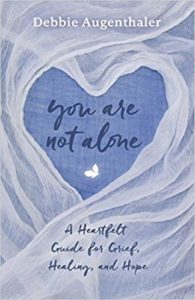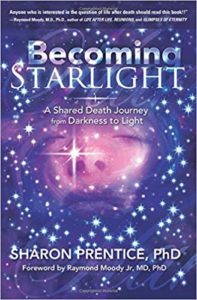Dealing With Death – You Are Not Alone!

If you’ve ever had the traumatic experience of dealing with death, you remember it all too well. While in some cultures death of a loved one is celebrated, in most Western cultures it is a time of hurt, loss, and confusion. In my own experience, the more deeply connected to the deceased I am, the greater the effect on my once-predictable world.
I’ve lost friends. Yet nothing compares with the loss of my mother two years ago. Written in the days following her death, this passage still brings a sad sullenness within me today:
There’s a kind of quiet, sullen surrender settling in. I guess it’s acceptance that I cannot change what is, no matter how much I may not like it. It’s colored by a shadow of loneliness, knowing that life ahead will be without my biggest fan, my mom. The mix of gratitude for all the good memories, yet the yearning for more, is at times confusing and unsettling. I used to muse at my mom’s apparent contentedness. Her go-with-the-flow way of doing life. I think I know now what that was about. It was about her holding an inner joy and happiness to let all those around her take center stage in life as she got older, for that is the way life works. I’m glad that so much of my life performance included her. She was my cohort, my straight man, my coach, my mentor. Who could ever have asked for more? I love you, Mom.
When you experience the loss of a loved one, you often hear from others the plea “let me know if there is anything I can do.” The truth is, you don’t know what you need any more than they do. All you know is that there’s a gaping hole in your world, in your heart and soul. No amount of tears or hugs or condolences seems to help. There’s just wave after wave of hurt.

Am I grieving too much?
It’s okay. You’re perfectly normal. And it’s okay to allow yourself all the time and space you need to work through it.
Nearly two years on from my mother’s passing, I thought I was weird for still having emotional moments, or hours, of grief. I was sure this wasn’t normal. Moreover, I thought that others who might still be experiencing my grief were probably silently thinking “just get over it.” Didn’t anyone care or hurt as much as I did? What’s wrong with me?
There is no set limit for how long you should grieve. It can take days or weeks for some people, while for others, it can be months or even years. However, immediately after the death of a loved one, by the end of the seventh week, you should start to feel better. And if you still don’t feel any better after the seventh week, it is okay to continue grieving. You should also be patient and trust that with time, you will heal.
You can also hold on to great memories as this can provide comfort. If you cremated the remains, you might want to consider what to do with the ashes. While some choose to spread the ashes in appropriate locations, others choose to keep them in an urn. If you’ve kept them, you can create some beautiful mementos, such as crafting jewelry from their ashes. What is cremation ash jewelry? It’s a creative way to hold the memory of the loved one close to you forever.
Answers do come.
Sometimes, we find our answers come from unexpected sources. As Ms Career Girl editor, I frequently do reviews of newly published books that are relevant to our readers. But I was surprised when not one but two new volumes came my way that dealt directly with death, not exactly a common topic on the website. It’s been one of those unexplainable little life mysteries, and I’m truly grateful for the wisdom and insight the authors shared.
If you’re currently in the midst of grieving, I hope these might benefit you as they have me. Here’s a short synopsis of both.
You Are Not Alone by Debbie Augenthaler
There is nothing quite like having a huge part of your life cut out, gone. There’s a confusion and disbelief that is like nothing you’ll ever experience. Author Debbie Augenthaler eloquently, honestly, and gently shares her personal experiences of such a loss, and how she coped. You’ll find her words so familiar that there’s comfort even through yet another round of tears.

Titled perfectly, reading this book left me feeling, for the first time, that I was indeed not alone. That the journey of healing is common along the path it takes us. Get the book. Read it and keep it. Sooner or later, you’ll find a peaceful familiarity in its pages.
Becoming Starlight by Sharon Prentice
For most of us humans, these are the ultimate unanswered questions:
- What is life?
- Is life as we experience it all there is?
- What is the essence of who we are?
I’m not religious. Sometimes, I wish that I was and that religion alone would settle all the questions. But it’s not about religion, at least for me. It’s about experiences for which I have no explanation. Coincidences? Chance occurrences? Or something more? You be the judge of just this one that I’ll share –
My sister, with whom I’d been very close, had fought cancer for several years. We all knew that her time was short. But I still vividly recall the morning she died. I was awakened much earlier than what was usual for me, and sat up in bed startled. It was as though she was there, in my bedroom, and I looked around expectantly. Thirty minutes later, I received the phone call that she had died. Did she visit me “on her way out?” Or is that just my fanciful explanation of an odd coincidence?

Experiences like that are fairly common around the death of a loved one. Is it just our frustration in trying to make sense out of a part of life that seems so senseless?
Surely, no one has the answers. But author Sharon Prentice will have you asking many questions, and finding your answers is part of the healing process. Her book is a perfect companion read to “You Are Not Alone.”


